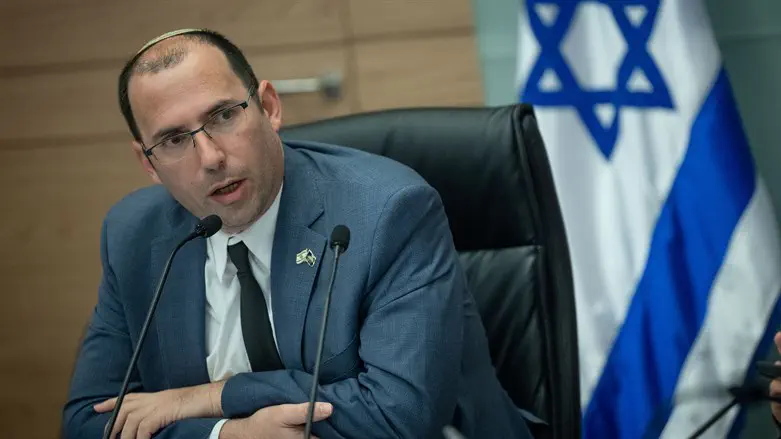
Chairman of the Constitution, Law, and Justice Committee, Member of Knesset Simcha Rotman, was interviewed today (Thursday) by Ynet and spoke about his shock from October 7th, the assistance he provided in identifying the deceased, and addressed the claims that the divide around the reform led to the massacre.
"October 7th threw all of us into a different place. Even where I live, for a significant period, when I was walking into the town, it was kind of an attraction. You would see four men walking - me and my bodyguards - when there were no other men in the settlement, certainly not without uniforms. Everyone either was drafted for the local council's territorial defense, in the north, or the south."
Regarding the work of identifying the deceased, he said: "It's a field I was trained in. On Sunday morning, my first trip was to the police headquarters in Sde Dov, where the families of the missing were asked to gather. At that stage, no one knew who was kidnapped, who wasn't, who was dead.
"I arrived there and saw broken families waiting outside. It was heartbreaking. It was chaos. I had meetings there with several Members of Knesset who understood that this is the place to be and came on their own initiative."
Later, Rothman moved to supervise and assist in Camp Shura, where the bodies of the victims were kept: "It's a facility that was prepared to receive 30 bodies a day, and it received 800 bodies just on the first day. Trucks with bodies kept coming all the time. Just more and more and more. ZAKA vehicles arrived, unloaded, went, and returned. Soldiers' bodies are on the left, and civilians' bodies are on the right. Some people were walking around like zombies because of the sights and smells and stories."
He also said, "One of the days I arrived there, and three families were outside. Someone from among them started to yell at me. It obviously stemmed from the frustration of what happened to his family member, but he was talking about the reform. The second family that stood next to us, hugged me and talked to me about how important it is that we continue with the reform. I'm not joking.
"Understand the surrealism. There, at Camp Shura. It's insane. The third family stood aside. They were Arabs from Rahat. It's a reality that there's no way to explain. It gives a hint of understanding. It happened again in other incidents. People on their children's graves said 'Don't you dare stop with the reform. Go all the way.'"
Regarding dealing with the psychological aftermath of the massacre, he said: "I can't say there weren't moments that I found myself crying."
When asked if he was doing some soul-searching, he replied: "I recently heard a podcast with former MK Einat Wilf, not your classic Religious Zionism voter, let's put it that way, and she also said: 'The argument was never about the judicial reform.'"
About the question of whether there is a connection between the divide around the reform and the massacre, he said: "If I thought there was a connection between dealing with the reform and the events of October 7th, that would give me a lot to think about. By the way, I also don't think there's a direct connection between the calls for refusal to serve and October 7th. That is, I think they did something very severe, but the events of October 7th would have happened with or without them. They were planned long before."
"I live with the feeling that what we experienced is a reality that was bound to happen since 2005. There's a video online of Dr. Sudai Nemir from Gush Katif, and you see IDF soldiers dragging him from his house, and he shouts: 'Katyushas will fall on Ashkelon and Sderot, terrorists will be in Be'eri.' I've had this scenario in mind since at least 2005."
